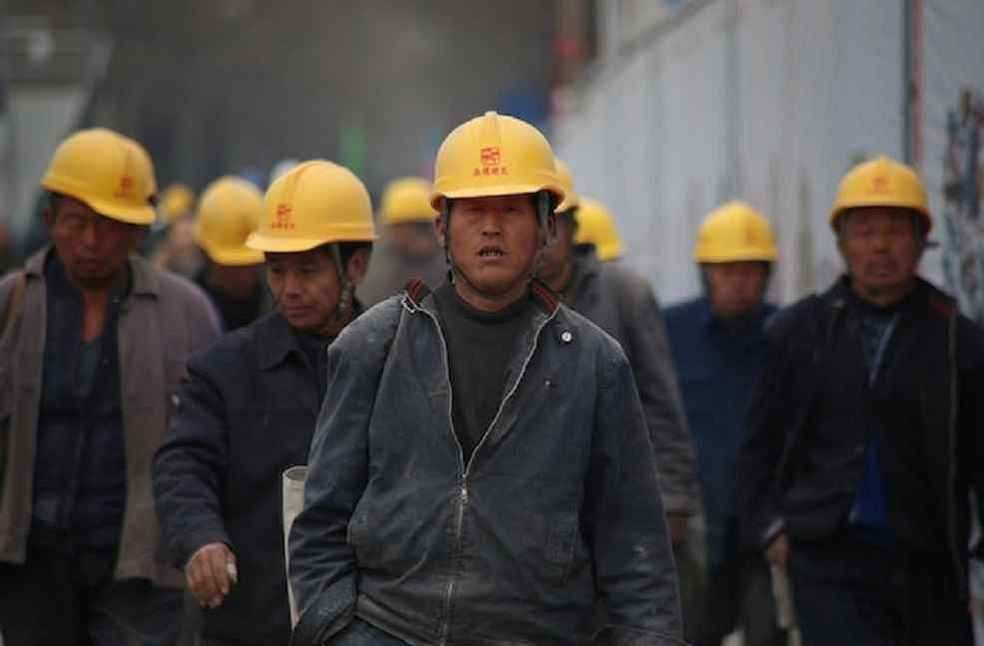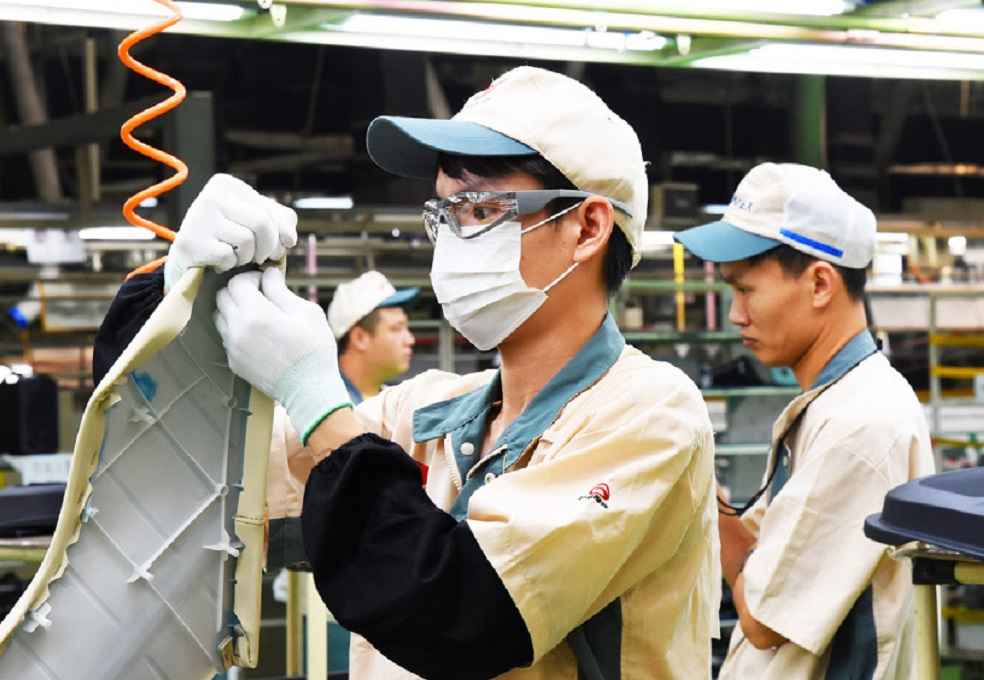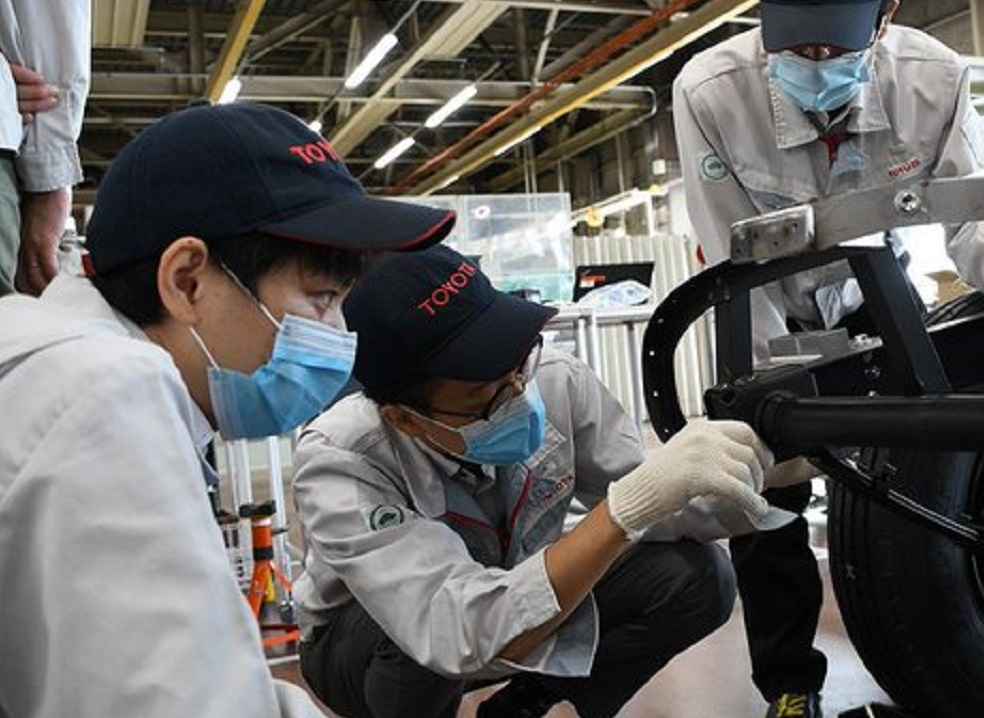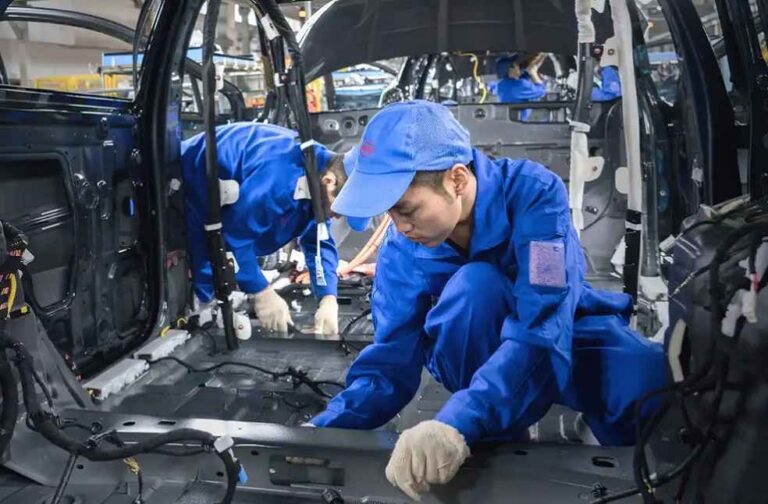Mike Chen, an auto worker collaborating with the SAIC-Volkswagen joint venture, grappling with drastically reduced wages – a sharp contrast from his hiring package in 2016. This June, as Shanghai experienced a sweltering heatwave, his factory switched to nocturnal operations and reduced air conditioning. This came after his overtime and cuts in bonuses. This seems like salt on the wounds.
Chen’s narrative isn’t isolated. The electric vehicle (EV) price war rages, pushing countless Chinese auto workers and suppliers into tumultuous waters.
Tesla, spearheading this aggressive pricing strategy, has drawn over 40 global brands into the fray. Due to this, Several automakers face curtailed production or outright factory closures.
Exclusive interviews conducted by Reuters reveal a sector grappling with tightened purse strings, from utilities and component costs to the wages impacting broader economic dynamics.

Alarmingly, China’s colossal auto sector, despite its global dominance, could soon hamstring the nation’s economic growth. With immense state-subsidized production capacity investments, the stagnation of domestic car demand and beleaguered household incomes present significant challenges.
Recent data underscores this trend: from January to July 2023, while China’s car exports surged to 2 million, marking a stellar 81% growth, even during the sweeping price slashes, domestic sales ticked up by a mere 1.7%.
Oxford University’s China Centre’s George Magnus reflects on this imbalance, highlighting the consequences of neglecting demand. This oversight results in overflowing inventories, forced price reductions, and looming financial uncertainties.

China’s car production potential touched 43 million vehicles per annum by the close of 2022. Yet, current factory operations tap into merely 54.5% of this potential, a stark decline from 2016’s 66.6%.
The auto sector’s salary structure garners scrutiny as well. Circumventing China’s wage reduction prohibitions, companies employ ingenious methods. Case in point: BYD, China’s premier EV producer, recently advertised a position with a monthly base pay of just $324, a figure significantly below China’s average monthly wage of 11,300 yuan.
The repercussions of the price wars aren’t confined to automakers. Suppliers, too, bear the brunt. A survey encompassing nearly 2,000 suppliers divulged that 74% faced cost-cutting demands from automakers.

With EV battery prices spiraling downwards, suppliers are trapped in a quagmire. Data from RealLi Research showcases certain EV batteries as being 21% less expensive in August than just five months prior.
Tesla’s aggressive EV price wars in China reveal an imbalance between production capacity and demand, exposing potential vulnerabilities in the country’s automotive sector. This strategy, while boosting exports, underscores the need for a focus on worker welfare and sustainable growth. Mike Chen’s experience exemplifies this pressing concern.
LATEST | Smart China Expo 2023: Unveiling NEVs and Future Digital Frontier





